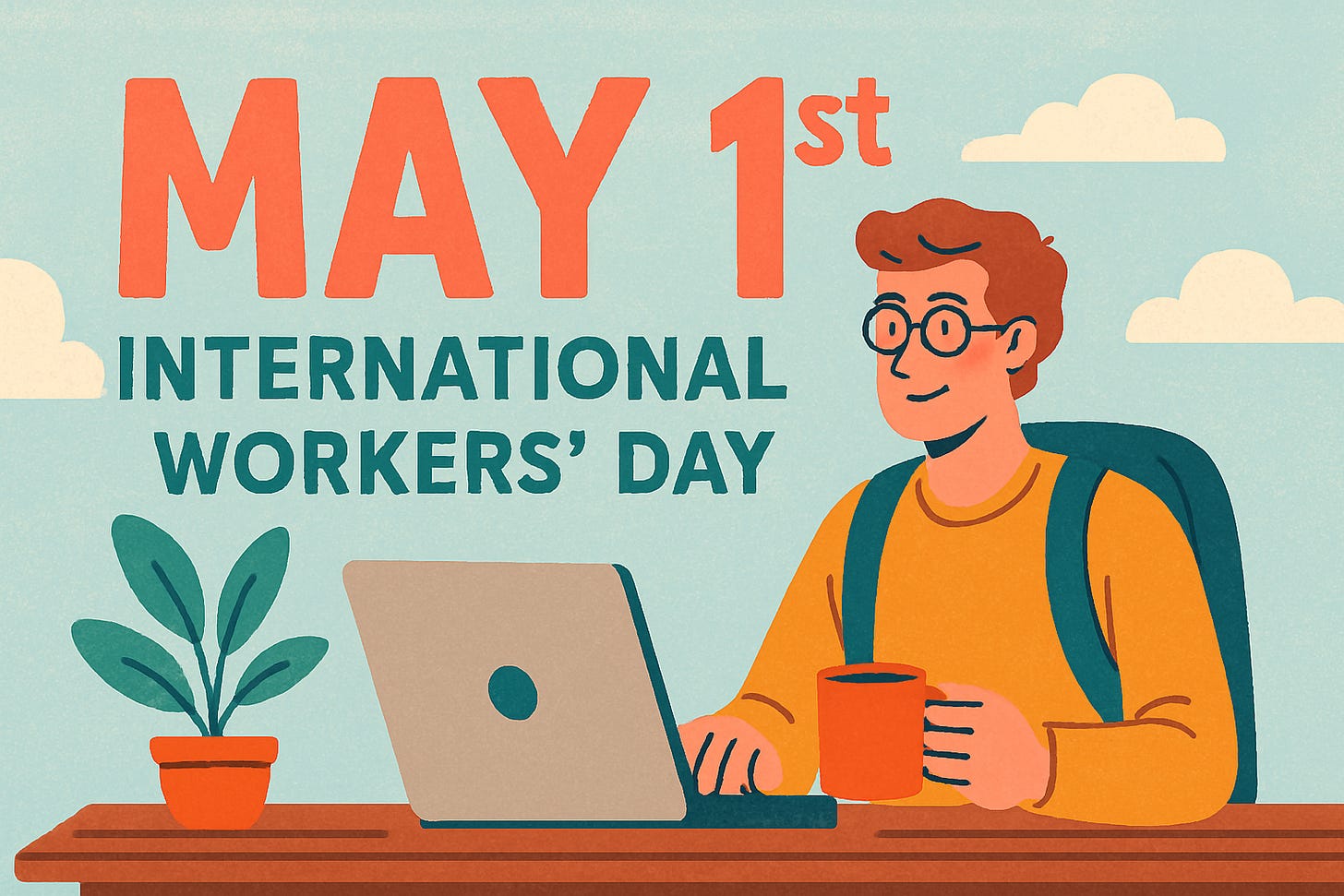May 1st Through the Eyes of a Digital Nomad
A reflection on rights, freedom, and the challenges of remote work on a day dedicated to workers around the world.
As a digital nomad, May 1st—International Workers’ Day—feels both familiar and paradoxical. While it’s a public holiday in many countries, marked by marches, speeches, and calls for labor rights, for people like me—who carry their offices in backpacks and work from co-working spaces in Bali or cafés in Lisbon—it brings up questions that traditional empl…




